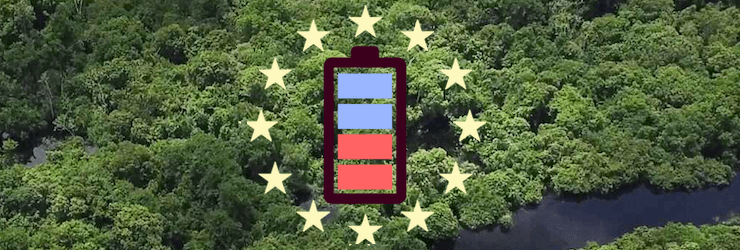Rezertifizierung des Energiemanagementsystems nach ISO 50001 ist anspruchsvoller geworden – oder warum eine Anforderung in der Akkreditierungsnorm ISO 50003 die Transparenz der Energieverbräuche konsequent fordert
Am 20. August 2018 wurde die neue Energiemanagement-Norm ISO 50001 veröffentlicht. Hierbei wurde die Bedeutung der fortlaufenden Verbesserung der Energieeffizienz hervorgehoben. Viele Unternehmen, die bereits ein Energiemanagement-System nach ISO 50001 betreiben, dürfte die Forderung auch in dieser Schärfe bereits bekannt sein, wurde sie doch durch die seit November 2016 gültige ISO 50003 bereits an Zertifizierungsstellen kommuniziert – und damit auch indirekt an die Unternehmen, die sie auditieren.
Die ISO 50003 ist eine sogenannte Akkreditierungsnorm und richtet sich ausdrücklich an Stellen, die Energiemanagement-Systeme auditieren und zertifizieren. Sie gilt in Verbindung mit der ISO/IEC 17021-1, die den Zertifizierungsprozess behandelt.
Energieeinsatz, Energieverbrauch und Energieeffizienz müssen nachvollziehbar nachgewiesen werden
“Der wichtigste Inhalt der ISO 50003 ist, dass eine Verbesserung der energiebezogenen Leistung, also der Dreiklang aus Energieeinsatz, Energieverbrauch und Energieeffizienz, durch das Unternehmen nachvollziehbar nachgewiesen werden muss. Die Aufgabe des Auditors ist es dann wiederum, diese Verbesserung im ISO-50001-Audit in seiner Dokumentation festzuhalten. Können hierfür nicht ausreichend Nachweise dargelegt werden, so kann dies als wesentliche Nichtkonformität behandelt werden, was bedeutet, dass es im schlimmsten Fall sogar zu einer Hauptabweichung und damit einem vorzeitigen Ende des Audits kommen kann.“, so Matthias Voigtmann, geschäftsführender Gesellschafter von ECA Concept und langjähriger ISO-50001-Auditor.
Was haben die Begleitnormen ISO 50006, ISO 50003 und ISO 50015 beim Energiemanagement zu bieten?
Wie diese energiebezogene Leistung und ihre fortlaufende Verbesserung unter Nutzung von Leistungskennzahlen und energetischen Ausgangsbasen gemessen werden kann, findet sich in der Begleitnorm ISO 50006. Ebenso verweist die ISO 50003 auch auf die ISO 50015, die eine Anleitung gibt zur Messung und Verifizierung der energiebezogenen Leistung. Es rückt nun also vor allem auch der Aspekt der Messung in den Vordergrund. Die Anforderungen und Hinweise aus diesen drei Normen haben sich offensichtlich in der betrieblichen Praxis bewährt und finden sich nun verstärkt in der neuen ISO 50001 wieder. Damit werden sie nun auch direkt für Unternehmen zu verbindlichen Anforderungen.
Ohne Messkonzept keine Transparenz – ohne Transparenz kein Nachweis über Verbesserungen beim Energiemanagement
Weitere wesentliche Inhalte der ISO 50003 sind Anforderungen an den Prozess der Auditierung, wie z. B. den erforderlichen Zeitaufwand und die Durchführung selbst, oder auch die Kompetenz von Auditoren. Was die ISO 50003 aber insbesondere zeigt: Ohne geeignetes Messkonzept gibt es keine Transparenz der Verbrauchsdaten, ohne Transparenz wiederum gibt es keine Möglichkeit, die eigene Verbesserung nachzuweisen und ohne Nachweis kann im schlimmsten Fall das Zertifikat nicht erteilt bzw. entzogen werden.
Verbauchsdaten mit Sankey-Diagramme nachvollziehbar darstellen
Transparenz der Verbrauchsdaten bedeutet nicht nur, die Zahlen zu haben, sondern auch sie geeignet und als sinnvoll strukturierte Information darzustellen, dafür setzen viele Unternehmen Sankey-Diagramme erfolgreich ein. Für Unternehmen, denen die Rezertifizierung wichtig ist, ist es also empfehlenswert, sich mit den Anforderungen vertraut zu machen, um beim nächsten Audit keine Überraschungen zu erleben.

Mehr erfahren zur Normenrevision der ISO 50001
Informationen zur Normenrevision der ISO 50001, die diesen Aspekt nun auch in den direkten Anforderungen an die auditierten Unternehmen berücksichtigt, erhalten Sie über unser Webinar, das sich diesem Thema widmet. Das Webinar wird regelmäßig angeboten, konkrete Termine und weitere Informationen sowie eine Anmeldemöglichkeit finden Sie hier.
Der Autor
Dieser Gastbeitrag wurde verfasst von Andreas Kopczewski von ECA Concept.
Andreas Kopczewski ist geschäftsführender Gesellschafter von ECA Concept. Er betreut seit der Vorgängernorm, der DIN EN 16001, Unternehmen bei der Einführung und dem Betrieb ihres Energiemanagementsystems und ist ausgebildeter Energie- und Umweltauditor sowie Nachhaltigkeitsmanager.
ECA Concept ist langjähriger Anwender der Sankey-Diagramm-Software e!Sankey und LCA Software Umberto und begleitet Unternehmen erfolgreich auf dem Weg, konsequent Energie- und Materialeffizienz zu steigern.




.png)

